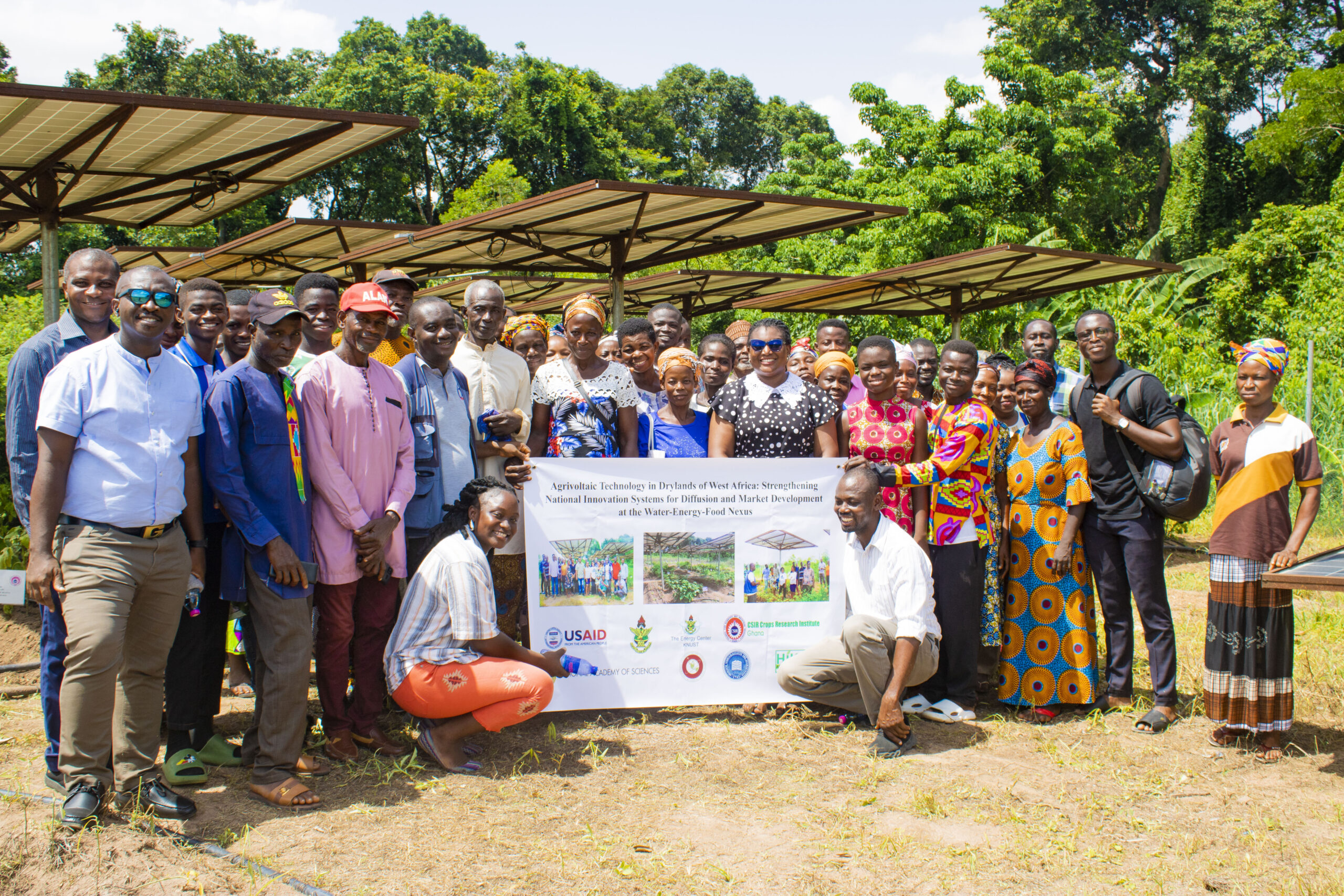CSIR-Crops Research Institute Introduces the Agrivoltaic Technology to Ghanaian Stakeholders
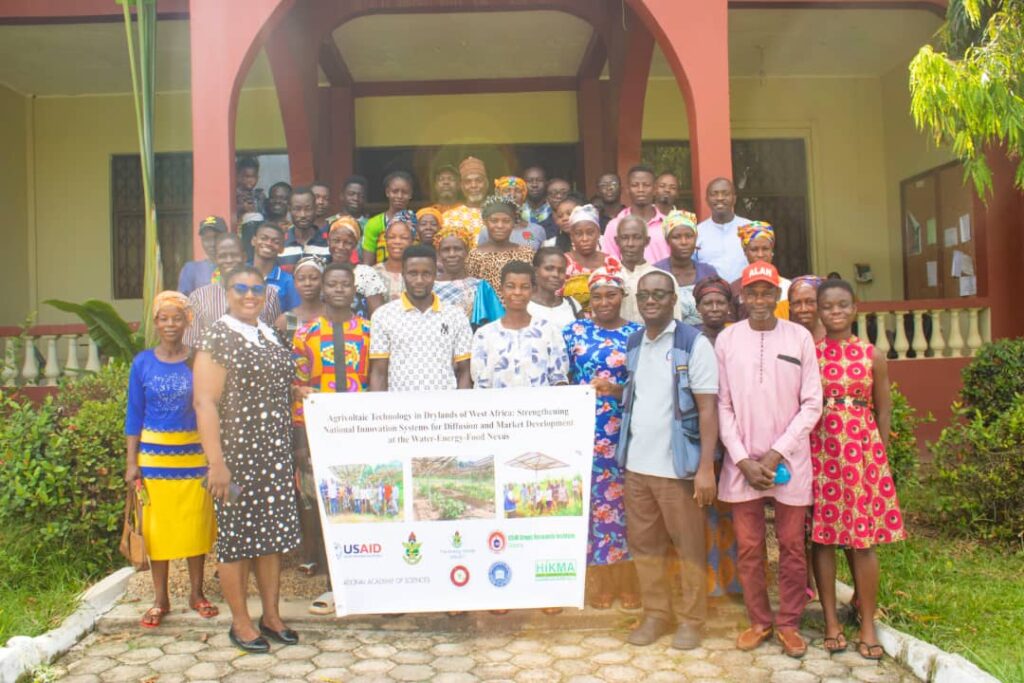
For many Ghanaian farmers and landowners, introducing solar panels to their fields has come at a great cost and limitation to land use. The traditional installations of solar panels often take up valuable agricultural lands, excluding all other uses of the land to. However, a recent research effort by a consortium of research institutions and private partners comprising of The Brew Hammond Energy Centre (KNUST, Kumasi), the CSIR-Crops Research Institute (Kumasi, Ghana) and Hikma Agro Services (Tamale, Ghana) offers a glimpse of a promising solutioncalledthe Agrivoltaic Technology for both energy and food crops production. The research project titled Agrivoltaic Technology in Drylands of West Africa: Strengthening National Innovation Systems for Diffusion and Market Development at the Water Energy-Food Nexus (dubbed the Agrivoltaic Project)is funded by the USAID through PEER/NAS.
On Wednesday, April 10th, 2024, the CSIR-Crops Research Institute hosted a Project Outcome and Sustainability Workshop to introduce stakeholders in the Ashanti Region to the Agrivoltaic Technology and share information on ongoing research as well as some research outputs. The workshop attracted participants from various settings, including farmers, extension officers, agro input dealers, photovoltaic suppliers and installers as well as researchers.
Welcome Address and Project Overview
Ing. Dr. Patricia Amankwaa-Yeboah, the Co-PI of the Agrivoltaic Project, welcomed participants and provided an overview of CSIR-CRI’s research which forms part of ongoing project activities. She presented the Agrivoltaic project’s objectives and its innovative approach to integrating raised solar panels for concurrent solar energy generation and agricultural activities. Ing. Dr. Amankwaa-Yeboah highlighted that CSIR-CRI, in collaboration with the Brew Hammond Energy Centre and Hikma Agro Services are the first consortium to explore this approach in Ghana.
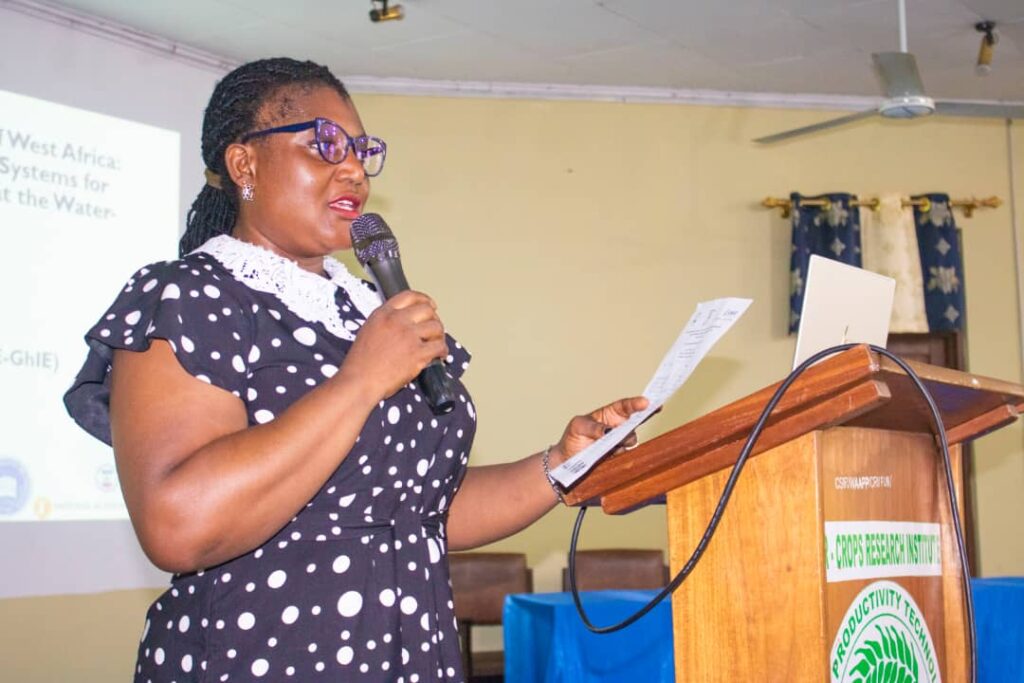
Stakeholders Witness Agrivoltaic Potential
The workshop was not just about presentations. Stakeholders were taken to the CSIR-CRI Agrivoltaic Experimental Site in Fumesua to witness for themselves what Agrivoltaic Technology is all about. The site featured nine elevated solar panels positioned strategically to allow ample space for planting. A key advantage of this design, compared to traditional installations, was the significant gap between the panels and the ground. For comparison’s sake, additional plots were established without solar panels. This side-by-side approach allowed the stakeholders to directly observe the difference in crop growth between those thriving under the Agrivoltaic panels and those exposed to full sunlight. An additional technology showcased at the site was a drip irrigation system powered by the solar panels, contributing to efficient resource use ( water and energy).
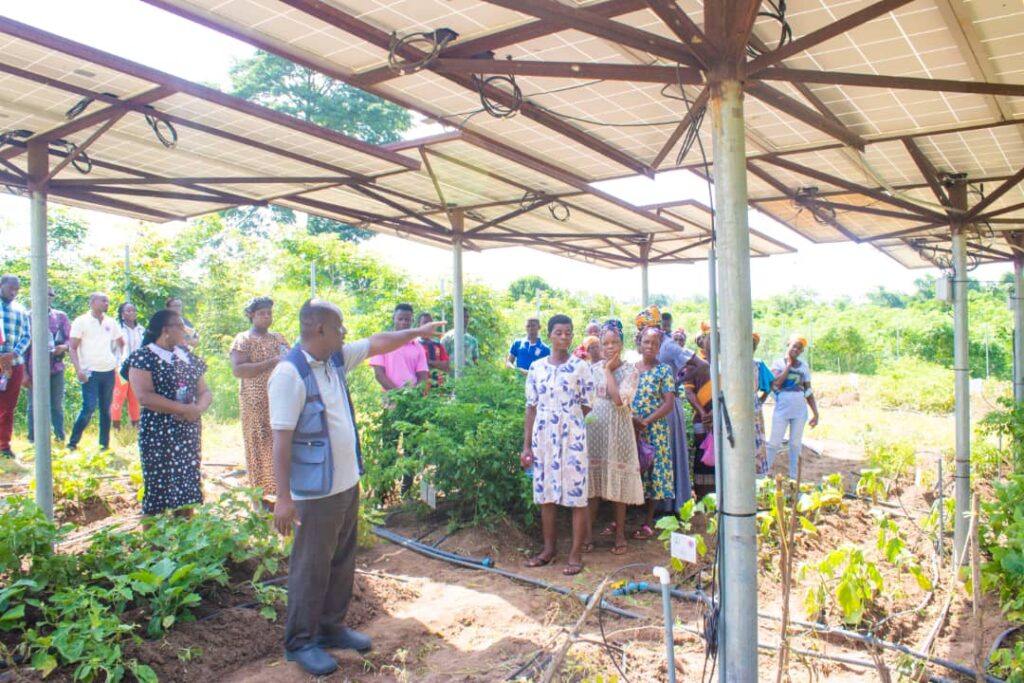
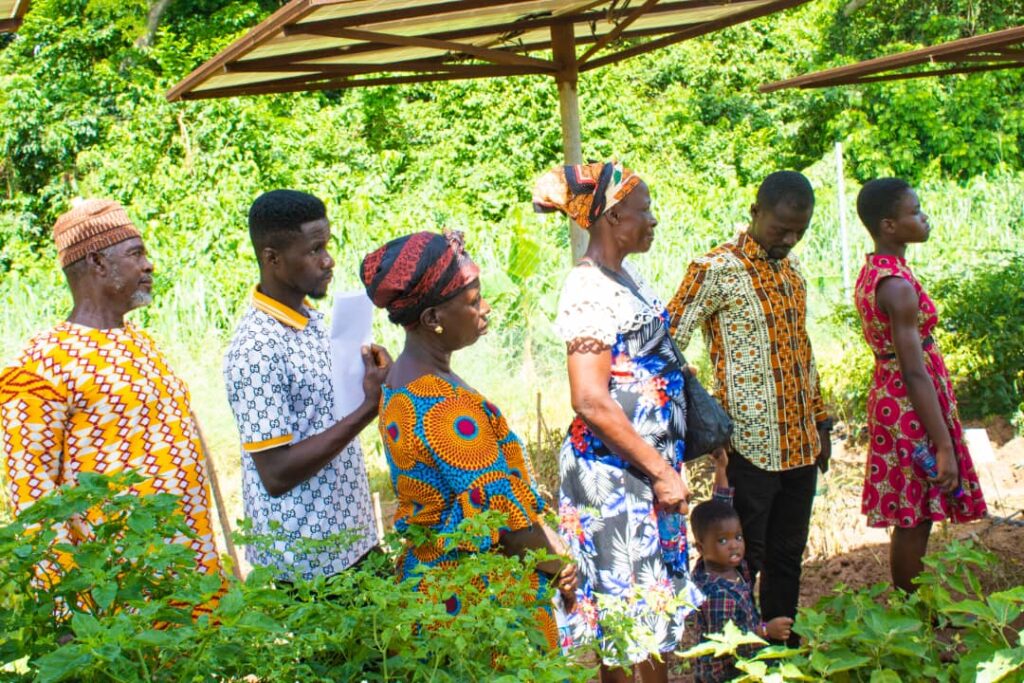
Ing. Dr. Amankwaa-Yeboah underlined the project’s commitment to developing Agrivoltaic Technology that completely benefits all stakeholders. She stated that research was ongoing at the CSIR-CRI to uncover all potential advantages and disadvantages of this Technology. “We are experimenting with various crop varieties, agronomic practices, and irrigation methods to determine which ones thrive best under the Agrivoltaic system. Currently, we have planted peppers, tomatoes, and garden eggs, but we plan to diversify with lettuce, cabbage, and cucumbers in the upcoming season” She added. Mr. Micah Offei Apraku, a Chief Technical Officer on the project, highlighted a key benefit of Agrivoltaic Technology by expressing that “Many past solar panel establishments have displaced farmers, the Agrivoltaic Technology, however, offers a win-win solution since it allows both solar panels and agricultural activities on the same plot.”
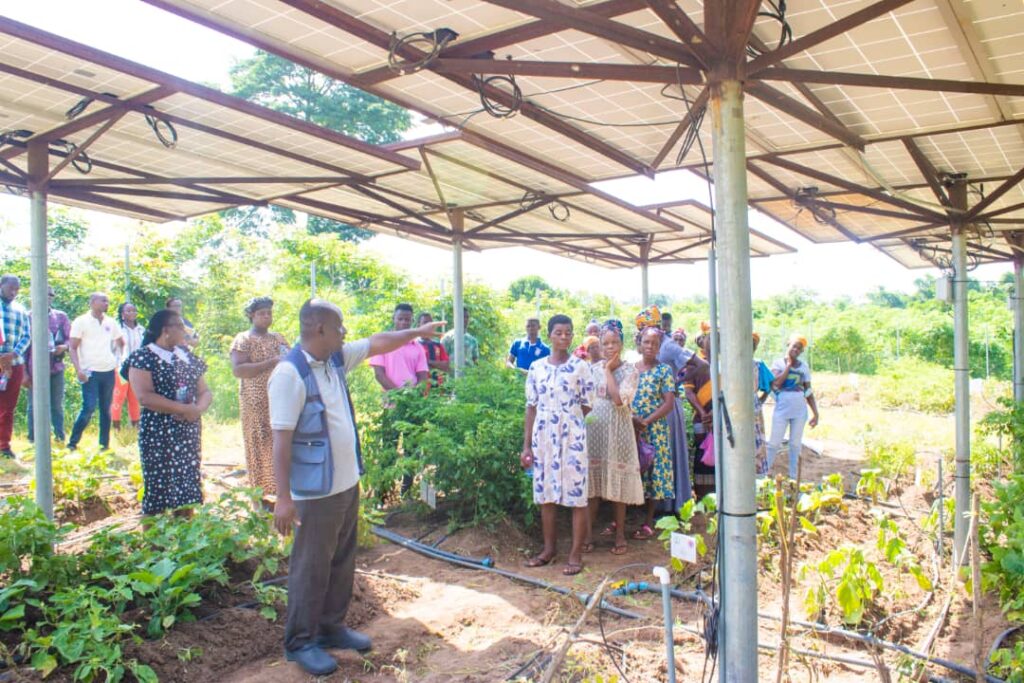
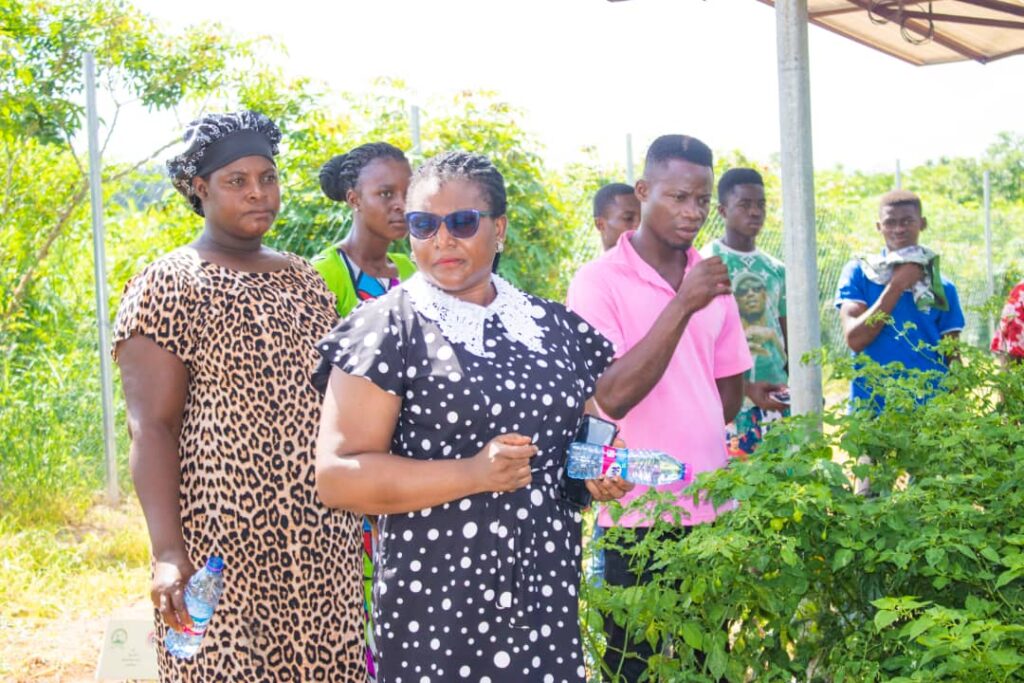
The Reality of Many Farmers
The truth is that Agrivoltaic Technology has appeared at a crucial time in Ghana’s history where the country is battling an energy crisis. Several calls have come to reinforce power supply with renewable energy generation, especially from solar. The area needed to expand energy generation from solar is enormously going to affect agricultural lands. Should this expansion become activated, some farmers may lose their crop fields to the photovoltaic technology. Also, up until now, a lot of farming communities still do not have access to electricity. The Agricultural Extension Officer leading farmers from Sonsuaso, a village near Ejisu to the workshop, Mr. Kwadwo Adjei Asante, expressed sadness when he mentioned that the farmers of Sonsuaso have no electricity in their community. However, with the introduction of Agrivoltaic Technology, he foresees a future where farmers of Sonsuaso can get access to solar energy while still utilising the same land for farming.
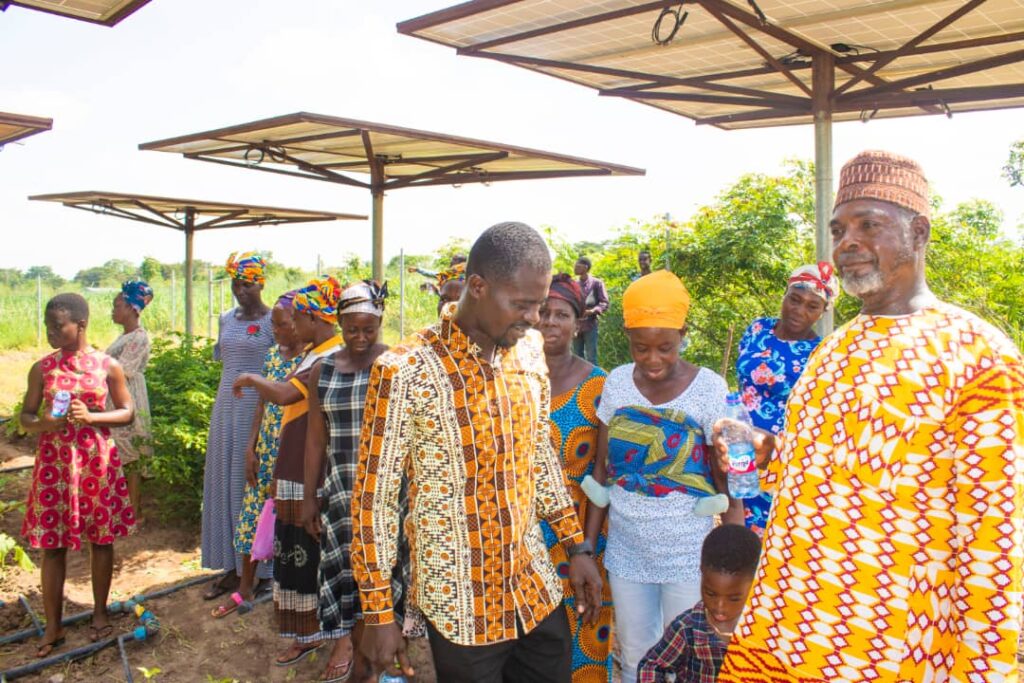
Stakeholder Feedback Highlights Promise of Agrivoltaic Technology
Stakeholders who attended the workshop expressed strong support for the Agrivoltaic Technology. Madam Odile Kwenchama, a participant and a farmer, appreciated the opportunity to learn about Agrivoltaic Technology. She emphasised, “I’ve gotten in-depth knowledge about Agrivoltaic Technology and it is indeed a game changer. It would greatly benefit us if we could gain access to it.”Another farmer, Mr. Shadrack Managanyire, echoed the same sentiment. He expressed his amazement at the Agrivoltiac Technology’s potential for efficient land use and energy generation for irrigation. He mentioned, “This Agrivoltaic Technology can change the narrative of our community.” Both farmers urged the government and other agricultural stakeholders to consider the widespread adoption of this technology.
A stakeholder from the Bui Power Authority (BPA) in charge of research, Mr. Daniel Asante, voiced his profound appreciation of the technology and expressed the willingness for collaboration between the BPA and the proponent consortium of the agrivoltaic technology in Ghana to further research into the technology. A Senior Research Scientist at the CSIR-Crops Research Institute, Dr Eric Owusu Danquah, also explained that the agronomic benefits of the agrivoltaic system were similar to those of agroforestry systems in their shading and water conservation effects.
Group Discussions and Presentations
Following the field visit, participants were divided into three groups to delve deeper into specific aspects of Agrivoltaic Technology such as partnership and capacity building for sustainable agrivoltaic research and promotion; innovative systems for agrivoltaic research and promotion; and policy environment for agrivoltaic research and promotion. Each group deliberated on their assigned topic and presented their findings and recommendations.
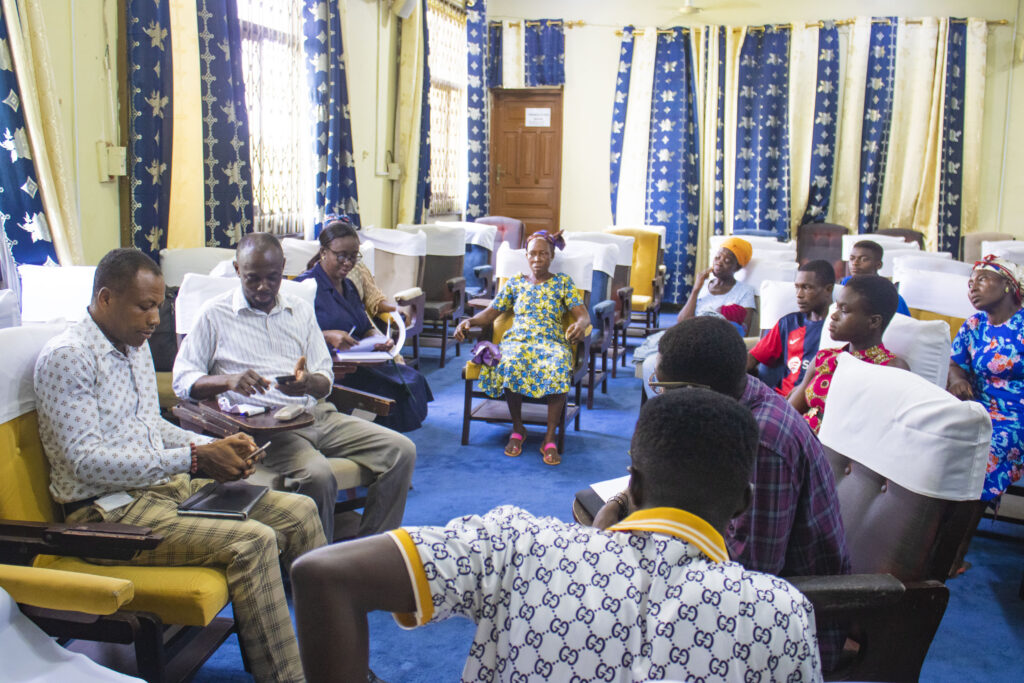
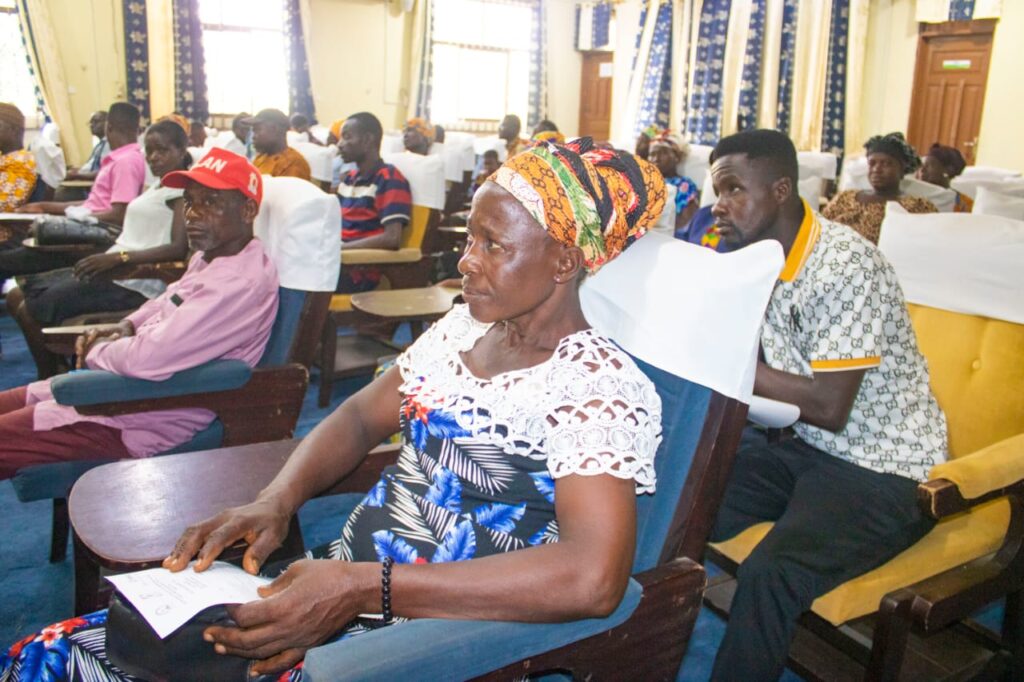
Closing Remarks: A Look to the Future
In his closing address, Dr.Kennedy Agyeman, a Senior Research Scientist and team member of the Agrivoltaic Project at CSIR-CRI who chaired the workshop, emphasised the proactive nature of CSIR-CRI’s research, which aims to address potential challenges before they materialise. He expressed optimism for the future, stating his belief that Agrivoltaic Technology will mitigate the conflict between land use for solar energy and Agricultural crop production for food and energy security in Ghana. Ing. Dr. Amankwaa-Yeboah thanked the stakeholders for their active participation and urged them to be the ambassadors of Agrivoltaic Technology.
Authors: Ing. Dr. Patricia Amankwah Yeboah, Ms. Linda Agyemang, Emmanuel Aborsi, Patricia Konadu Mensah

